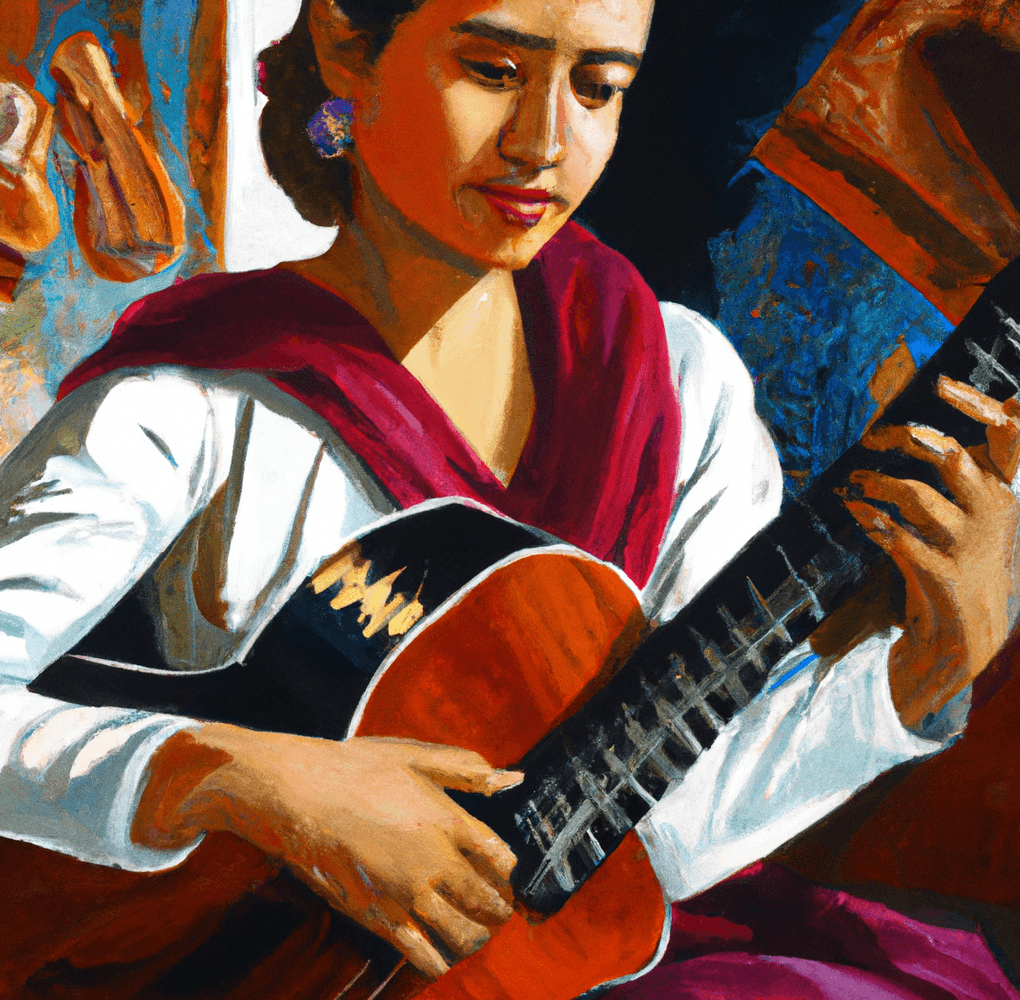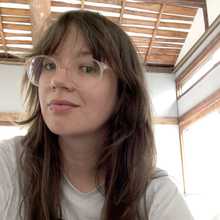Welcome
This half-day workshop will take place in hybrid format on May 29th, 2023, at the NIME conference in Mexico City and online.
With this workshop, we aim to bring together researchers with the common interest of querying, articulating and understanding experience in the context of New Interfaces for Musical Expression, and to jointly identify challenges, methodologies and opportunities in this space. Furthermore, we hope it serves as a platform for strengthening the community of researchers working with qualitative and phenomenological methods around the design of DMIs and HCI applied to musical interaction.

About the workshop
First, let's unpack the title of the workshop:
What do we mean by "experience"?
Experience itself is a multi-faceted concept; HCI views experience as the subjective aspects of interaction with technology, while psychology associates experience with learning and acquiring knowledge from the world. DMI research has involved a little of both: musical interaction is inherently subjective and dependent on the background and previous interactions of all involved——musicians, DMI designers, listeners. As well, this existing knowledge shapes how we approach our musical craft, how we learn new musical interactions based on ones we know already, and how our role in the world influences our music. Experience in this subjective and context-dependent definition is therefore critical to the study of DMIs, their design, use, and role in music performance.
What do we mean by "querying"?
Querying is a process of asking questions and seeking answers. In this workshop, we will explore different methods of enquiry as they have been used by the organisers and invited speakers.
Methodologies
Our workshop will be based on a series of short presentations, followed by hands-on experience observing and participating in their processes. We will explore the following methodologies:
Somaesthetics
Somaesthetics (Shusterman, 2008) is a term that combines soma—our non-dualistic subjective self, body, emotion, and thinking—and aesthetics—as in our ability to perceptually appreciate the world around us, what we feel, hear, see and engage with (Hook, 2018). It has been proposed that soma design has an important and distinctive role to play in the design of NIMEs that emphasise the aesthetics of playing an instrument alongside the generation of sound (Martinez Avila et al., 2020). It presents a novel approach to NIME design which is grounded in the performer’s subjective experience of their body in performance (Cotton et al., 2021).
Micro-phenomenology
Micro-phenomenology (Petitmengin, 2006) is a qualitative method that is being used in HCI/design (Prpa et al., 2020) for articulating the nuances, complexity and diversity of users' experiences beyond surface descriptions. In NIME, it has been used to research perception, and to understand interaction and performance with digital musical instruments (Reed et al., 2022).
Dialogic design
Dialogic design (Gatehouse, 2020; Wright & McCarthy, 2018) is a subset of participatory design (PD) which highlights the significance of multidirectional flow of ideas, getting back to PD’s radical origins of workplace user involvement in Scandinavia. As a method in NIME, it can be used to articulate the experience of the performer and channel it into specific design decisions (Zayas-Garin & McPherson, 2022).
Retrospective trioethnography
Retrospective trioethnography (Howell et al., 2021), rooted in autoethnography (Ellis et al., 2011), is a method in which design researchers turn the lens on themselves and their design process, allowing first-hand experience to spark new insights, treating subjectivity and emotions as central to research. Particularly, duoethnography and trioethnography are based on the juxtaposition of the personal experiences of two or three affined researchers, with emphasis given to the dialogical relationship between their lived experiences. Its potential for NIME is in its ability to challenge existing narratives and discover new ways of reporting on our design processes.
References
Schedule
The half-day workshop will be hybrid on May 29, 2023. The workshop will take place in the second half of the day, from 13:00 - 17:00 local time in Mexico City (GMT-6). The time is TBC and may be slightly amended leading up to the conference.
The workshop will take place as follows:
Opening (20 minutes)
We will open with the workshop's motivation, agenda, and introduction to the organizers and methodologies to be discussed.
Speaker presentations (50 minutes)
We will then give the floor to our invited speakers to present their work in somaesthetics, micro-phenomenology, dialogic design and retrospective trioethnography.
Participant introductions (30 minutes)
After the presentations, we will invite participants to introduce themselves to get to know each other and their research interests.
Taster session (60 minutes)
We will run two parallel activities so that participants can spend time getting to know the methods they are most interested in through first-hand experience. The workshop organisers and Featured Speakers will lead activities so the small groups can experience working with these methods and see how experience is queried.
These activities will be later finalised by the organisers and speakers, but will likely include somaesthetic exercises such as body mapping, scanning, and deautomatisation, experiencing being interviewed through micro-phenomenologically-inspired interviews, and engaging in short dialogic designs and trioethnographic reflections.
Next steps (30 minutes)
Participants will be invited to create a map of their own research interests and methodologies, as well as the ones presented in the workshop, with special attention to how the methodologies relate and complement each other. In groups, we will form ideas and concrete steps to further the knowledge taken from this workshop in our own research.
Breaks (10 minutes each)
Although we will encourage participants to take a break whenever they need, we will schedule two 10-minute breaks to allow participants time away from the workshop and get to know each other more.
Reflection and closing remarks (30 minutes)
At the end of the workshop, we will reflect on the day’s activities and what was learned and take next steps to build a research community around these methods within NIME. We will ensure documentation of sources and information shared during the workshop in a shared repository, for future use. We will also discuss how the workshop can be improved for future editions and how this information can be shared with others in NIME. We will close by identifying opportunities for collaboration and discussion beyond the workshop.
| Activity | Duration (minutes) |
|---|---|
| Opening | 20 |
| Speaker presentations | 50 |
| Participant introductions | 30 |
| Break | 10 |
| Taster session | 60 |
| Next steps | 30 |
| Break | 10 |
| Reflection and closing | 30 |
Organisers

Courtney N. Reed is a vocalist and Postdoctoral Research Assistant in Design Analytics and Music Physiology in the School of Biomedical Engineering & Imaging Sciences at King's College London. Her research focuses on externalising internal sensory feedback, control dynamics between musicians and their musical bodies, and how music and physiology shape each other. She in most interested in first-person research methods and co-explorations of musical experiences through micro-phenomenology.

Eevee Zayas-Garin is a PhD student at Queen Mary University of London. They are a design engineer and musician who also explores the mediums of poetry and photography. Their research focuses on accessibility, lived experience and replicability in digital musical instrument design. Drawing from disability justice perspectives, they work towards developing NIME research methods that engage with matters of access, articulating experience and instrument longevity.

Andrew McPherson is a Professor of Design Engineering and Music in the Dyson School of Design Engineering, Imperial College London, where he leads the Augmented Instruments Laboratory. He is a computing researcher, composer, electronic engineer, and musical instrument designer.
Featured speakers

Kelsey Cotton is a vocalist-artist-mover working with experimental music, Musical Artificial Intelligence, electronic textiles, soft-robotics, and Human-Computer Interaction. As a researcher, Kelsey is fascinated with pushing the limits of musical bodies, with her recent work delving deeper into designing artifacts which harness, augment and fuse different physiologies. She is passionate about somatic interaction, the potential for intersomatic experiences between fleshy and synthetic bodies, and first-person feminist perspectives of musical AI. Kelsey is currently undertaking PhD studies in Interactive Music and AI at Chalmers University of Technology in Gothenburg, Sweden.

Noura Howell is an Assistant Professor in Digital Media at Georgia Tech. Her design research explores embodied, emotional, sonic interactions with biodata——data about people’s bodies and behaviors. Working with heat, sound, and vibration, her work investigates ways of knowing, ways of feeling, and ways of listening with biodata. What can (and can’t) biodata infer about how we feel, and how might engagements with biodata influence how we feel?

Juan Pablo Martinez Avila is a Research Fellow at the Mixed Reality Laboratory (University of Nottingham, UK). His research work addressing the embodied practices of musicians through ethnographic studies, participatory design and embodied ideation methods—such as Soma design—has been published at TOCHI, JNMR, CHI, CSCW and NIME receiving honourable mentions in 2019, 2021 and 2022. He has also been a diversity officer for NIME since 2020. His current research interests involve the use of creative AI in musicking and digital musical instrument design and understanding how these can be analysed and informed by first and second-person perspective design methodologies.

Cally Gatehouse is a Lecturer, HEA Fellow, designer, and researcher at the School of Design, Northumbria University. Cally’s interest is in the distinctive kinds of knowledge that design can produce and how that can help designers, researchers and citizens to navigate and understand a world shaped by network technology. Cally’s work incorporates a background in graphic and communication design, drawing on a range of post-solutionist design practices and feminist STS to consider how design research practices can find ways to forging commitments to complex problems which resist easy resolution.
Submission
We invite researchers, designers, practitioners and community members to submit materials that refect their interest in the aforementioned topics. These materials may be one of the following:
- 1-2 page statement of interest or position paper
- Short video (45 seconds to 3 minutes)
- Blog post
- Pictorial
Accepted submissions will be featured on the workshop’s website.
Accessibility
We are committed to making this workshop accessible to all. If you have any accessibility requirements, please let us know in your submission email.
Submit